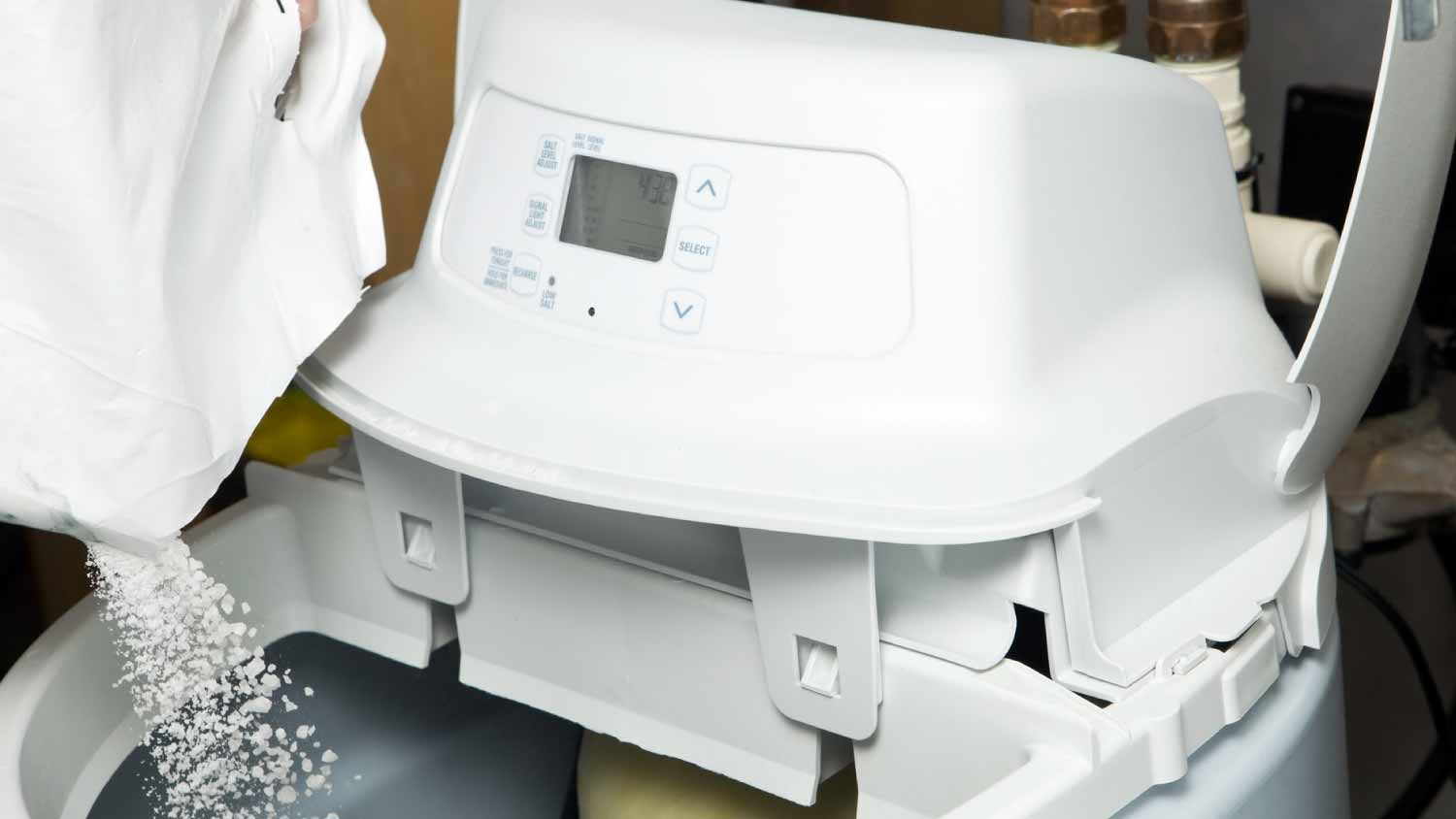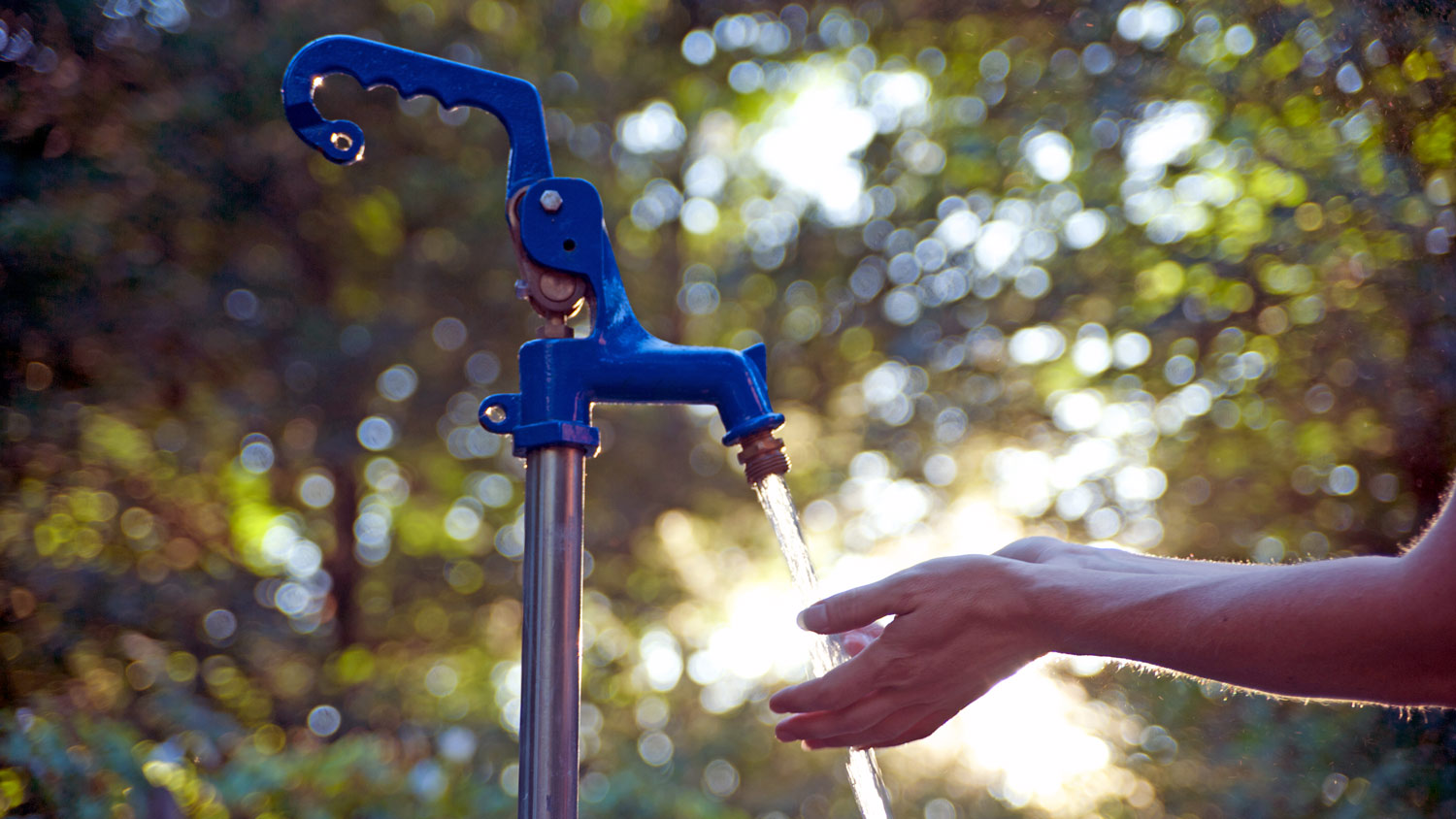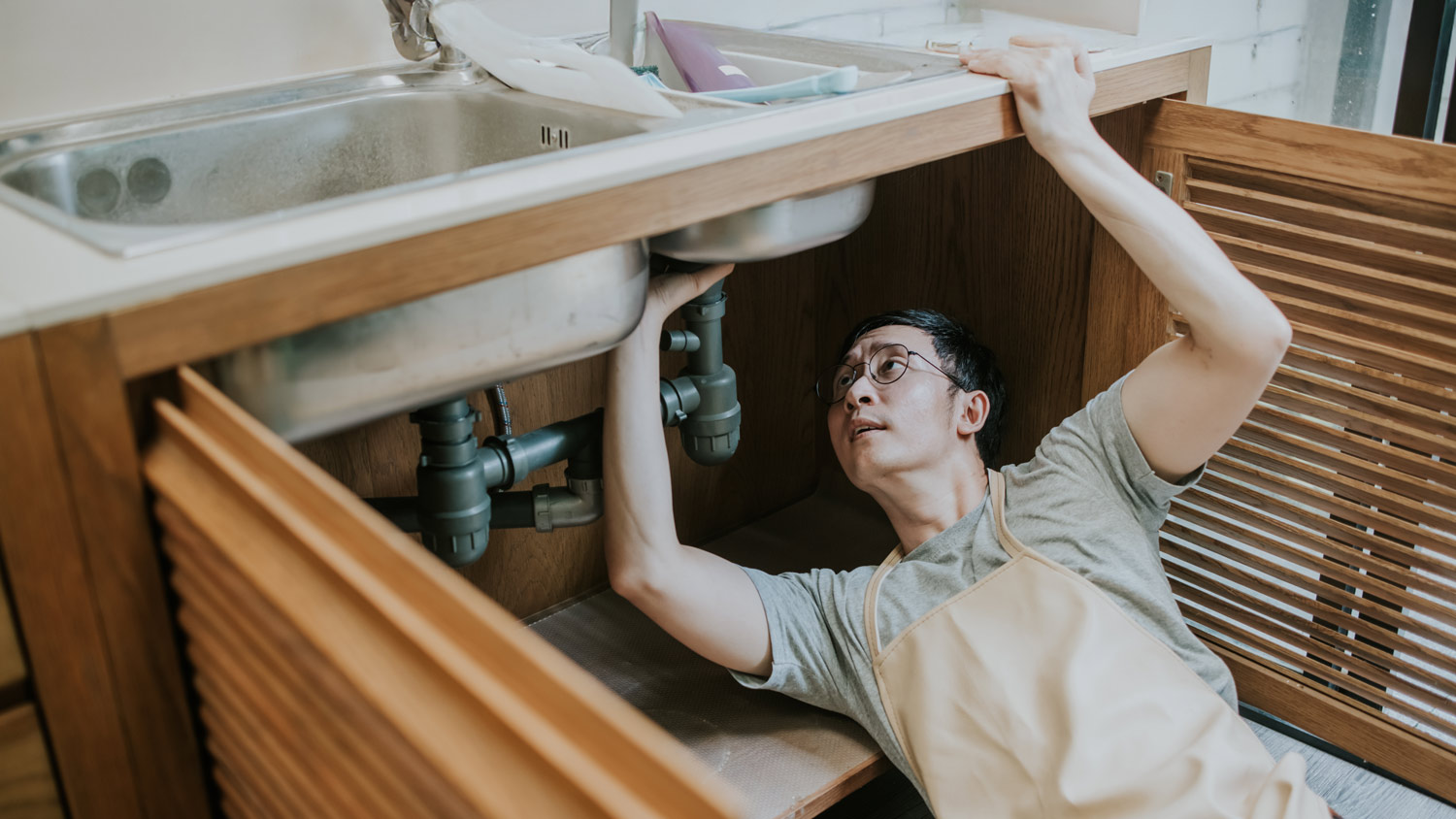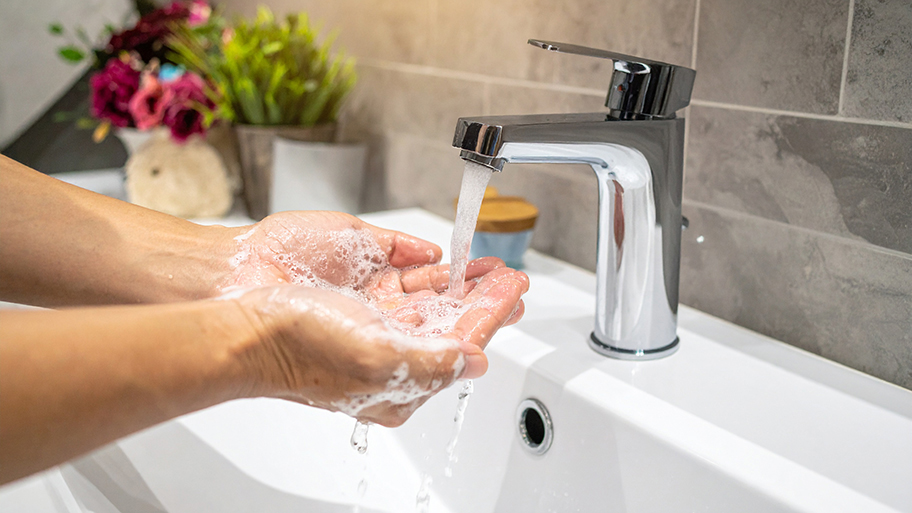
Wondering about water treatment system costs? Learn average prices, key cost factors, and ways to save on installation and maintenance for your home.
Making a hard choice easier


Water softeners are ideal for treating hard water and well water.
Install a water softener as a whole-house system to prevent limescale buildup and issues with your hair and skin.
A water conditioner temporarily changes the water’s chemistry but doesn’t soften it.
If you’re only concerned about limescale buildup in pipes and appliances, a water conditioner can get the job done.
Salt-based water softeners aren’t legal in all areas, so check with your local municipality before installing them.
If you have hard water, water softeners and conditioners can both be solid options. However, they are two distinct systems that provide different results. Water softeners permanently change the structure of the water, and conditioners temporarily change the water’s chemistry. Both can prevent limescale buildup and damage to your appliances and plumbing, but water softeners offer even more great benefits for you and your home. Read on to learn more about water softeners versus water conditioners and when to choose each.

The main difference between water softeners and water conditioners is what they remove. Water softeners remove hardness minerals such as magnesium, calcium, and iron, but water conditioners temporarily alter the water’s chemistry to remove contaminants.
Water softeners exchange ions with water on a molecular level. Water runs over resin beads coated in sodium ions to displace the minerals. The ion exchange gives the water a balanced charge and softer molecular composition. Water softeners provide permanent change to the water, which not only protects your plumbing and appliances but also your hair and skin.
Water conditioners remove chemicals like chlorine and contaminants like lead and organic gases, but they have limited water-softening abilities. Instead, they alter your water’s taste and smell. They can reduce hard water scaling on plumbing and fixtures, but they don’t actually soften the water. Instead, they temporarily alter the chemistry.
| Type of Difference | Water Softener | Water Conditioner |
|---|---|---|
| What it removes | Hardness minerals | Contaminants |
| Results | Soft water | Better taste, smell |
| Cost | $1,500 on average | $1,500 on average |
| Installation | Moderate | Easy |
| Life span | 10–25 years | 10–25 years |
| Approved areas | Most municipalities | All municipalities |
Water softeners and water conditioners differ in their process, purpose, and more. Learn the key differences between these systems to ensure you choose the right fit for your home.
Water softeners remove hardness minerals, while water conditioners temporarily alter the chemistry to remove contaminants, such as lead. If you have hard water or well water, choose a water softener. If you just want to remove contaminants, opt for a conditioner or a water filter.
Because there is no government oversight of private wells, people relying on them are responsible for managing their own water quality to ensure it is safe (and enjoyable) to drink.
Water softeners turn hard water into standard soft water that does not leave limescale buildup on pipes and appliances. They also prevent mineral deposits that can cause itchy skin, flat hair, spots on your dishes, and faded clothing.
A water conditioner temporarily changes the chemistry of the water to improve the taste and smell and prevent some limescale buildup. A conditioner does not soften the water or offer benefits to your hair, skin, and clothing.
The cost of a water softener is $1,500 on average, but can range from $200 to $6,000 depending on your home's size and the system. A pro should handle water softener installation.
The cost of a water conditioner ranges from $900 to $5,000, with $1,500 being the average. You can install a point-of-use conditioner yourself, but a whole-house system requires a pro.
A water softener is a point-of-entry system, meaning it treats the water for your entire home. A local water softener installation company installs it where the water line comes into your house. A water softener requires electricity, a drainage line, and salt or brine to operate.
A water conditioner can be point-of-entry or point-of-use (like under-sink conditioners), so it doesn’t always require a drain line. A conditioner can be installed for a single faucet or individual appliance, such as a water heater, to prevent limescale buildup.
Both water softeners and water conditioners last 10 to 25 years, depending on the system and how well it is maintained and repaired.
Water conditioners are legal everywhere since they don’t release salt into the wastewater.
However, some states and municipalities have banned salt-based water softeners because they discharge salt into the wastewater, which can be difficult for treatment plants to remove and can even reach lakes and rivers. Check with your local municipality to verify what types of water softeners are permitted.
Water softeners and conditioners are both great appliances to invest in if you experience hard water or water that doesn’t taste all that good. If you're concerned primarily with scale buildup or use well water, focus on water softeners. If you really just want to improve your water’s taste and smell, a conditioner might be the better choice.
Still unsure how to choose a water softener or conditioner? Contact a local water softener company to analyze your water. You can also test your water with a home kit or work with a professional lab to determine your water quality, which can give you some helpful data to base your decision on.
From average costs to expert advice, get all the answers you need to get your job done.

Wondering about water treatment system costs? Learn average prices, key cost factors, and ways to save on installation and maintenance for your home.

Discover how much well water treatment systems cost, including installation, maintenance, and tips to save. Get expert insights to plan your water system project.

Your cost to install an under-sink water filter will depend on the type and size of system you choose and whether you need professional installation.

Here are the top questions about water treatment and purification systems you should ask a contractor before adding one to your home.

Water softeners and filters might sound similar, but they serve different purposes. Here’s what to know when comparing a water softener versus a water filter.

Need help dialing in your water hardness? Use this handy DIY guide on how to set a water softener to save money and get the best results possible.